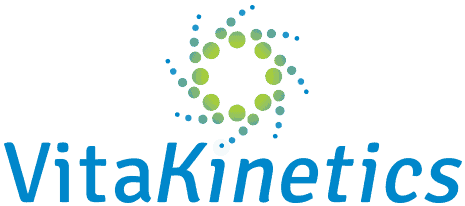Radically Resilient Health Podcast
Vitamin C | Improving Sleep and Recovery
Continuing her series on supplement ingredients, Vitakinetics founder Carolyn Dolan helps you understand the benefits of taking vitamin C before surgeries or to recover from illness. Dr. Dolan explains how a high dose of vitamin C can help drastically improve your overall wellness in ways you can’t get from eating an orange.
Transcript:
Connie Wray: (00:00)
Welcome back to radically resilient health with Dr. Carolyn Dolan. Over our last few podcasts, we have been diving into the ingredients that you will find in Vitakinetics. In our last episode, we talked about the importance of vitamin D not only consuming it naturally, but also why Dr. Dolan decided to put vitamin D invited kinetics and we’re moving on to vitamin C. And I think many people, when they think about vitamin C, they imagine eating oranges or drinking a glass of orange juice. And today Dr. Dolan will talk to us about the importance of vitamin C. That one orange just might not be exactly what you need. You might need more vitamin C Dr. Dolan, you and I have chatted quite often about the importance of vitamin C. I mean, it really is a way to prevent free radical damage when it comes to some of the contributing factors to aging degeneration. But if someone were to really sit down and consume the amount of vitamin C that we actually need, we’d be in a lot of oranges.
Dr. Carolyn Dolan: (01:08)
For sure. In fact, by the kinetics was developed to promote healthy healing, promote that natural healing process, inflammatory process and pain reductions. One of the reasons why I actually came across vitamin C in the research initially again, I was trying to disprove the need for supplements. Let’s just remind you. That was what my initial goal was. I was really working on the chronic regional pain syndrome patient, which is a pretty devastating chronic pain state that develops after mild injuries or surgeries. And there’s a fair amount of research using vitamin C to reduce the risk of developing complex regional pain syndrome. This complex regional pain syndrome is a chronic pain state and taking high doses of vitamin C seems to reduce risk of developing this chronic pain state. And so I found it very interesting and I use it. You bring up the orange all the time, and I use vitamin C and the oranges and the example, the supplementation, it’s so important to get it at a dosing that has some therapeutic effect.
Dr. Carolyn Dolan: (02:12)
And so the orange has about a hundred milligrams. One whole orange has about a hundred milligrams, I believe. Uh, vitamin C clearly you get a lot more of youth fibers, other micronutrients, I go within the whole or orange. So I would recommend eating a whole orange or whole fruits and vegetables. But in order to reach a therapeutic level, particularly, and say this reduction of risk of developing a chronic pain state like complex regional pain syndrome, you would have to eat 10 oranges to get to that a thousand milligrams of vitamin C. And so while we can consume whole foods and you get more nutrients in that natural form, sometimes you really do need to hit that supplementation to, to that therapy dosing, because it’s going to be really rare that anyone’s going to have time for eating 10 oranges. That that would be a lot of work.
Dr. Carolyn Dolan: (03:07)
I don’t know that I’ve eaten 10 oranges in a week, even for that matter. You know, the acid might be potentially a problem for some folks and certainly orange juice. You mentioned orange juice might be a way to get more vitamin C, but then we’re at a higher glycemic load. So higher sugar load, which isn’t good when you’re really trying to work on regulating your blood sugar. So vitamin C supplementation can be very valuable. The other interesting thing, and again, one of the key components to our blend is trying to maximize effectiveness, but also a safety profile, unlike vitamin D three, which is a fat soluble vitamin, which means you need to consume fat in order to absorb vitamin C is water soluble. It’s rare that you can really even over consume it cause you would otherwise just pee it out in your urine. Now, obviously there is some cautionary tale there.
Dr. Carolyn Dolan: (04:01)
If someone’s in kidney failure, which is not a majority of our population, but if they had some sort of kidney failure, then maybe vitamin high dose, vitamin C, isn’t the right match for them. But there’s all the other health benefits, like you mentioned, vitamin C is an antioxidant. It’s also helps promote better sleep. So when you improve someone’s vitamin C status, it appears that their sleep quality may also improve. And I’ve certainly witnessed that working with clients and myself, personally, that as soon as we start eating better and less inflammatory foods, whole fruits, vegetables, um, animal sources of protein, then we do send to see not only pain improves stress, resiliency improves, but also your sleep will improve is less disruptive. So there’s a lot of really great benefits to vitamin C both in the reduction of risk of chronic pain, promoting the antioxidant. Like we talked about the anti-aging that resiliency, stress, resiliency, natural stress resiliency, um, it’s safe, can’t over consume it cause you’ll pee it out when your vitamin C status has improved your sleep improves. And when we look at the whole picture of what Vitakinetics stands for, you know, the eat well, move well, sleep well, connect well supplement. Well, it feeds onto some of those other components. So that’s really why we included it in our blend.
Connie Wray: (05:31)
You talk a lot about the research that you did to really nail down the ingredients that you wanted to put in Vitakinetics. And you also mentioned, as you did again, at the beginning of this podcast, you know, this whole research project was originally designed to prove that supplements did not work when you really started to break down each ingredient like right now, talking about vitamin C, were you surprised at how effective it was in helping people with better sleep, reducing that inflammation and the chronic state of pain?
Dr. Carolyn Dolan: (06:07)
Um, the sleep really surprised me act the sleep was really pretty surprising, but really what led me there was that reduction in risk of developing those chronic pain states, like the complex regional pain syndrome I’ve had in my physical therapy career. And I can remember almost every single one of those patients that had either a major surgery or some sort of minor surgery or minor injury that developed this complex regional pain syndrome. And it’s such a fascinating disorder and very complex and its effect both on our perception of pain, changes that go along in our brain, the effects on the sympathetic nervous system and changes in skin color it’s it’s the pain states and they almost develop the sense of other of that affected limb or injured part from a neurological standpoint is so interesting to me and how difficult it is to treat, um, from a medication standpoint, physical therapy standpoint.
Dr. Carolyn Dolan: (07:12)
Um, one of my most successful patients that I worked with who really returned to high high function, um, you know, it’s not like it goes away. You know, a lot of these things with chronic pain stains don’t necessarily just disappear. You just learn to understand all the messages better and understand what’s something you need to listen to and how to continue to be functioning. So, um, this particular patient was a mother. Um, I actually speak about her in my, um, my bookstore into health, um, because it just was so fascinating to me how difficult this this syndrome was, but that vitamin C really high doses of vitamin C, particularly when you’re heading into, if you know, you’re going to have surgery, um, can reduce that risk of developing that chronic pain state. Um, maybe because it allows you to get the best sleep you can during those situations, maybe it’s because of those antioxidant effects that allows you to be more resilient to the stress, maybe it’s effect on the tendon healing and the wound healing benefits, um, and, and the reduction in pain.
Dr. Carolyn Dolan: (08:27)
And so that’s really, again, it was very surprising. I D I’d heard it, but I hadn’t really seen the data or some of those studies to really make that connection. And again, one of the things about the supplement industry is you want to make sure safety effectiveness are important. And this really is one of the, I mean, who hasn’t heard of vitamin C or even taken vitamin C themselves, but what’s important is what’s also paired with that vitamin C and the dosing, um, which is what we’re going through, all the ingredients of our, of our supplements. So, you know, what you’re getting and, and the dosing is in there to provide you a therapeutic benefit.
Connie Wray: (09:09)
I think one of the other things that I always valued with Vitakinetics is, you know, you mentioned this a lot of us have taken vitamin C, but that vitamin C supplement that you’re taking, how effective is that supplement? I remember when I first started to take Vitakinetics and I had some vitamin C that I had been taking prior to, and I really started to look at the ingredients of the vitamin C that I was taking and realized there wasn’t even that much vitamin C in the vitamin C supplement I was taking. Could you highlight again when you pick the amount of each ingredient that goes in there? And I would say the quality of ingredients that you’re putting into Vita kinetics that is so important for people to really look at if they are going to add a supplement to their, their diet.
Dr. Carolyn Dolan: (10:02)
Right. And we mentioned earlier, there’s, there’s something magical about the vitamin C at a thousand milligrams where you get, start to see, um, a therapeutic benefit, right? And, and what that means is either reduction in pain or reduction in developed a risk of developing chronic pain state. Um, there is also this idea of the sleep we mentioned. Um, it reduces the risk of using, um, other pain managements like opioids, um, during the postoperative period, but it’s also promotes a healthy immune cell function, um, which we ha we, we talked about in that flammatory process and the macrophage and how important. So essentially it helps promote optimal function of those macrophages, which are so important. And so there’s a big, um, market around vitamin C and fighting colds and such. And it’s not that it actually prevents you from getting said cold or virus, which is what I think a lot of people think it does.
Dr. Carolyn Dolan: (11:13)
What it really is starting to do at therapeutic levels is giving you the support of your immune system so that your, those cells can do what they need to do efficiently. Um, so it means the same thing. There’s a lot of people trying to take advantage of our current pandemic, trying to promote things that, um, may, uh, prevent or that, uh, prevent something. And really there, there is nothing that is going to prevent said infection other than not getting exposed, right. Um, to a certain virus or pathogen, which is beyond the scope of what we’re talking about here, but consuming something like vitamin C and optimal doses allows your immune system to respond appropriately. So it’s not a fail safe, anything. And again, that’s why we mentioned reducing the risk of developing chronic pain. There’s a lot of factors that go into these problems, but that it does seem to support healthy macrophage function, which is important for bone healing, wound healing, which again, is that getting you that full cycle of pain reduction, it’s very difficult to hurt yourself with it.
Dr. Carolyn Dolan: (12:29)
If you over-consume in certain practices over consuming or consuming, a lot of vitamin C, essentially the worst case response would be some diarrhea or stool softening. And in which case you would back off the dosing, right? Which we can’t say that for a lot of our other pharmaceutical medications that we take, we do often have to be very careful about taking them as prescribed. And then there was another side effect that came up. That was really interesting, cause I had been concerned about it, but we’ve all heard of scurvy right back in the days, those folks on the ships would be vitamin C deficient and have all kinds of illnesses as it related to scurvy. And it had come up that maybe taking too much vitamin C and then stopping, you would potentially end up in a scurvy type situation. I could not find any data when I would do my pub med searches to validate that.
Dr. Carolyn Dolan: (13:28)
And that’s not really a validated problem that you would have some sort of rebound scurvy after taking high doses. And again, we can’t say that for a lot of like things like opioids. You can’t just cut it off cold Turkey, right. And you have to kind of wean off, have your oftentimes in care of a healthcare facility. So I was really surprised and I’m glad to have it in our blends because I feel good about including it as far as its health benefits. And again, we’re trying to promote a healthy, inflammatory macrophage when it comes to healing. And this seems to be supportive. The data suggests that it is good for that.
Connie Wray: (14:08)
Well, and I noticed too, that, uh, on your website you make mention of a report by the American society of plastic surgeons. And oftentimes you hear pro pre-surgery a Dr. May say, we want you to quit taking your supplements or quit taking vitamins or, and really they’re saying that patients who are taking vitamin C supplements, they can continue to take those supplements. Pre-surgery. And to me that really is another profound insight into the benefits of vitamin C. Like you’re saying, it’s good, it’s helping you prepare for what is about to happen to you and then helping with that natural healing process say after your surgery.
Dr. Carolyn Dolan: (14:47)
I know that you use Vitakinetics maybe even bit before and then took a break, um, for a period of time before your surgery. I always tell people, well, I feel confident in its safety profile. Um, it’s always important to have that conversation with your surgeons and, and most surgeons or doctors would want you to back off all of those things for at least a week or longer before surgery. And I think it’s mostly because they’re not as well-versed in what potentially this, the benefits of it. And they would prefer to have like a clean, safe slate. Like I just don’t want to have anything else that might confuse what we’re doing here, and I can respect that, but there are certain times where you can talk to your doctor and I’m all about having an open dialogue with them and for sure, pick it up as soon as you’re ready, right. And then you can start taking it as soon as you’re done with your surgical procedure, making sure there’s no interactions. And again, with the vitamin C in particular, there really aren’t drug and other drug interactions or problems in that way. Unless of course you’re suffering from severe kidney failure of sorts. And then of course, you really need to be having a conversation with your healthcare provider.
Connie Wray: (16:04)
Of course, you can find out more about vitamin C and the effects and the ingredients inside Vitakinetics. You can visit the website, Vitakinetics.com, and we’re going to continue our series on the ingredients, invited kinetic and coming up in our next podcast episode, we’re going to be talking about curcumin and tumeric two other ingredients inside Vitakinetics. But again, you can find out more information by visiting Vitakinetics.com.

Mena
Radically Resilient Health Podcast Small Steps Conquer Mountains with Special Guest Mena Spodobalski Evoke Fitness owner, Mena Spodobalski, shares her joys and struggles toward radically resilient health. Health doesn't always have to seem radical. The best workout...
Recovery From Substance Dependency With Lori Windfelt
Radically Resilient Health Podcast Recovery From Substance Dependency With Lori Windfelt Radically Resilient Health is not about the absence of disease, injury, or stress, it is the ability to recover and make positive choices to support your overall health. Lori...
Emotional and Mental Resiliency – With Special Guest Dusty Braun
Radically Resilient Health Podcast Emotional and Mental Resiliency With Dr. Dusty Braun Our mind and body are intimately interconnected in ways that we can't really comprehend outside of science. We oftentimes think ourselves or our minds as separate from our body,...
Available at our partner locations

690 West 2nd St. Suite 101
Reno, NV 89503

13981 S Virginia St #402b,
Reno, NV 89511








